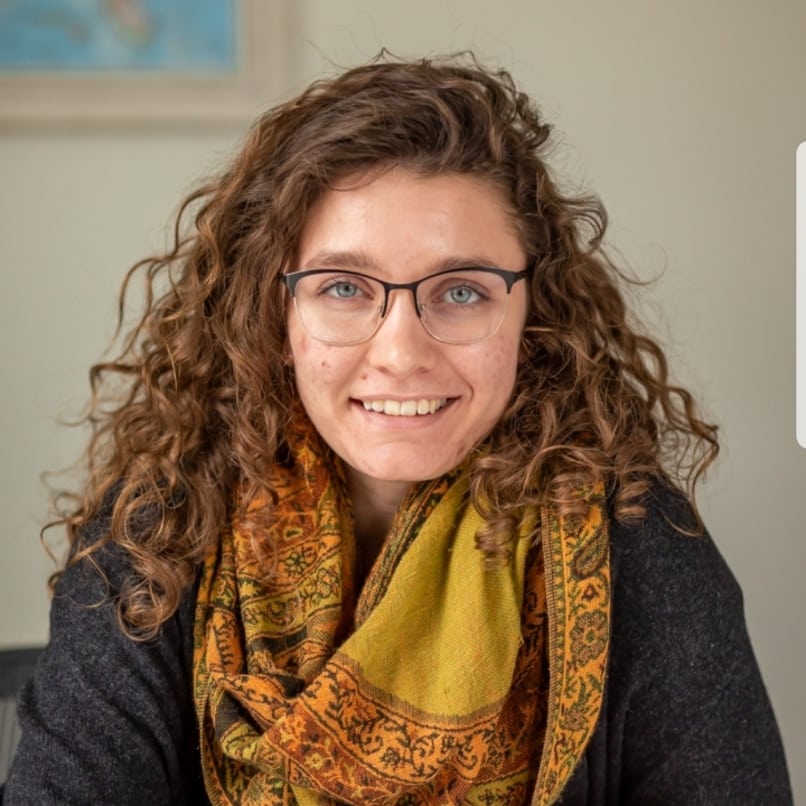
Rethinking Social Media
Written by Marcella Brylski
Walking through the quiet, carpeted hallway on the ground floor of Delp Hall on the way to office hours, I stopped in front of Dr. Kelly Scott Franklin’s office door. There, hanging in stark contrast to the door’s dark wood, was a giant piece of grayish-white paper with a colorful, fine-tip marker attached. Scrawled across the top and bottom of the paper were the provocative pairings, “Shelley or Keats” and “Whitman or Dickinson.” A flurry of tally marks and scribbled comments left by students and professors voiced opinions in energetic emerald green.
After Dr. Franklin deleted his social media accounts last year, he crafted this new form of social media, which engages students and professors alike in fun and lively literary debates. These debates re-create the friendly arguments and light-hearted conversation about literary and even academic topics that social media can provide, and which Dr. Franklin found himself missing, in an easily moderated space and without some of the self-conscious and potentially negative aspects of online media.
Late in 2018, Dr. Franklin, an assistant professor of English at Hillsdale, ran across a New Yorker article on Twitter that criticized the increasingly common use, especially among self-published writers and intellectuals, of social media as a platform for self-promotion. The author argued that this use of social media for personal branding and publicity has caused social media to become essentially self-centered, not to mention massively time-consuming. Why not, she asked, get a nine-to-five job, which has benefits, rather than spending all of that time advertising on social media? That time, she suggested, could then be invested in the thinking and writing themselves rather than in developing one’s brand as a writer. On her model, the author has the freedom to write for the sake of writing, and to be interested in the work of others for the sake of content rather than for the sake of personal image.
Dr. Franklin, though not a self-publishing author, found that he had, in fact, been using social media as a place for branding and publicity. He was troubled both by the amount of time he spent on social media (thirty minutes per weekday adds up to over a hundred hours per year) and the way that social media caused him to treat other people, even if only distant acquaintances, as commodities rather than human beings—following important intellectuals, for example, as a way to build a brand and gain an audience, rather than for their own sake or even for the content they might share.
Social media, as it appeared to him, had become a self-centered rather than a truly social platform; it was all about promoting my ideas, my work, and my brand rather than about a real exchange of ideas.
After a bit of soul searching, Dr. Franklin decided that social media wasn’t worth it. Though it holds a lot of potential for marketing, Dr. Franklin couldn’t justify its use given the number of articles one could write in those hundred hours per year, especially given recent research in social media’s possible cognitive and psychological effects. Dr. Franklin referred, for example, to research on the effects of constant proximity to screens and to social media, and to a Wall Street Journal article1 that cited a 56 percent increase in teen suicide—in Dr. Franklin’s words, an “apocalypse” rather than a mere “uptick.”
So, he deleted his accounts.
After a while, however, he realized that he missed certain aspects of social media. While still happy with his decision to leave it behind, he wanted a way to replicate the fun conversations and lively debates that Twitter polls could provide, as well as the chance to hear people’s thoughts on literary matters in the realm of play rather than only in that of strictly academic work. Finding himself in possession of a pad of large sheets of paper leftover from a classroom activity, he decided to spark up the conversation again—this time with pen and paper and sans the potential negativity: because this forum is easily moderated and more specific, it does not allow for the “false creation of the self,” as Dr. Franklin called it, that often pervades traditional social media.
Dr. Franklin has gone through four different topics to date. He started with a couple of open-ended questions (favorite lines from poems and novels) and followed them up with a couple of polls, like the one mentioned above. The latter, he says, seem to get the most attention. On a recent poll about favorites of Shakespeare’s tragedies and comedies, one person cited Hamlet as their favorite comedy, while another wrote that they liked the lesser-known Coriolanus, thus achieving instant hipster status.
Through his innovative social media door, Dr. Franklin has found a fruitful way to keep up the fun parts of social media—the good-naturedly contentious and light-heartedly literary discussions—while foregoing its negative effects, and he would encourage others to consider a similar course of action.
1Brianna Abbott, “Youth Suicide Rate Increased 56% in Decade, CDC Says,” Wall Street Journal, October 17,
2019, https://www.wsj.com/articles/youth-suicide-rate-rises-56-in-decade-cdc-says-11571284861.
 Marcella Brylski, ’20, grew up in the great state of Minnesota, where she learned to love sunny fall days and distance running along the Mississippi River. She studies English and Greek at Hillsdale and takes great joy in unexpected conversations with friends, discovering contemporary poets, and unearthing treasures at the local thrift store.
Marcella Brylski, ’20, grew up in the great state of Minnesota, where she learned to love sunny fall days and distance running along the Mississippi River. She studies English and Greek at Hillsdale and takes great joy in unexpected conversations with friends, discovering contemporary poets, and unearthing treasures at the local thrift store.
Published in December 2019